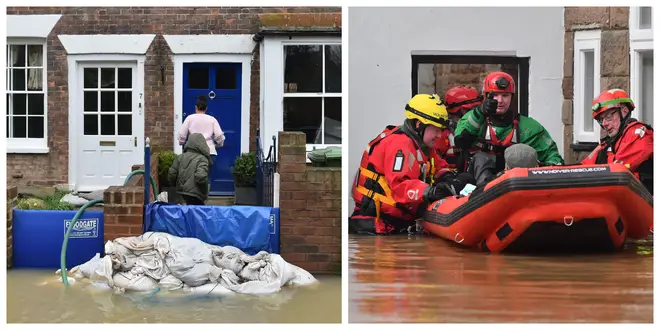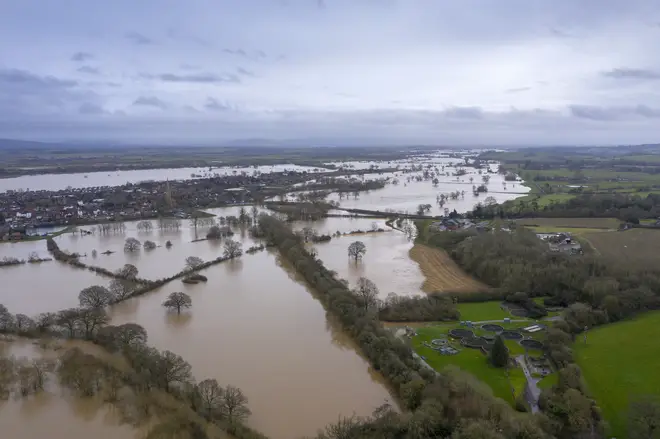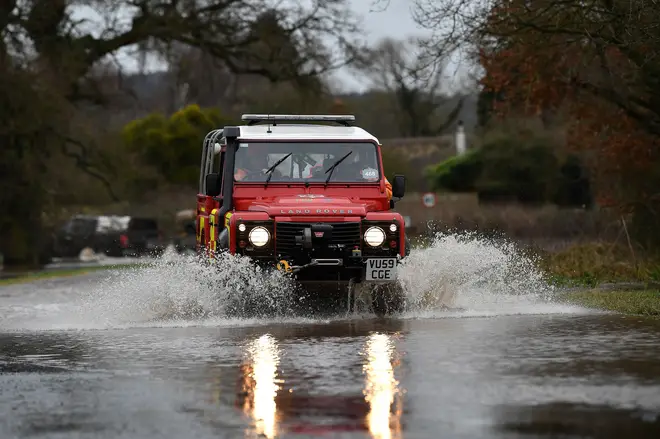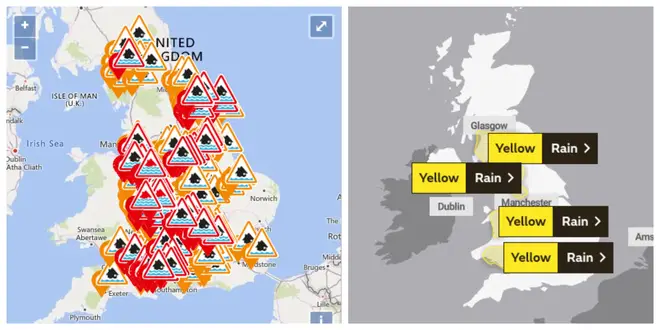
Nick Abbot 10pm - 1am
19 February 2020, 18:44
Further agony is in store for flood-hit communities across Britain as forecasters predict a month's worth of rain to fall in just 24 hours.
People already battling with the aftermath of several days worth of rain have been told that more rain is to be expected, with pockets of North Wales, northern England and Scotland among those in line for further deluges.
The Environment Agency has put out a warning for "heightened flood risk" across the Midlands.
It comes after they warned that England had already received 141 per cent of its average February rainfall so far this month.
Six "danger to life" flood warnings are in place as rivers come close to bursting their banks.
The warnings are in place for the Rivers Lugg, Severn and Wye. The lower Avon also remains especially high.
As of Wednesday afternoon, flood warnings remain for 120 places, with a further 150 lower category alerts also present.
Trunk roads have been forced to close and hundreds of people have been evacuated from their homes in the worst-affected areas.
But forecasters have predicted further heavy rainfall is on its way, three days after Storm Dennis left the UK for Scandinavia.


West Mercia Police said an estimated 384 properties had been "significantly impacted by the floods" across Worcestershire, Herefordshire and Shropshire.
Residents in the Shropshire towns of Ironbridge and Bridgnorth were urged to evacuate their properties, while residents in Bewdley near Kidderminster were warned flood barriers at Beales Corner might not be able to withstand the rising water levels.
Craig Snell, from the Met Office, said: "Hot on the heels of Storm Dennis, we have now got this next weather system coming through.
"We have a cluster of warnings around the UK running today into tomorrow.


He continued: "Rainfall totals are not too high at the moment. But if we are looking at the situation in 24 hours' time, we could be looking at 50-60mm in South Wales, 70-100mm in North Wales, and up to 100mm in north west England.
"In the worst case scenario we could see a month's worth of rain.
"It is more the fact that quite a lot of the UK has seen a wet winter. Ordinarily, 50mm of rain would give us a wet day, rivers would be able to cope.
"But the ground is saturated (due to the persistent, heavy rainfall) so it is causing problems."
The latest #radar 📡 shows some very heavy #rain 🌧️ across western Scotland and northwest England at the moment #WeatherAware pic.twitter.com/7tT699wolY
— Met Office (@metoffice) February 19, 2020
1,400 properties across England and Wales were flooded over the weekend and hundreds more evacuated after the downpours brought to the UK over the past two weeks.
John Curtin, EA executive director, said: "We expect further disruptive weather today, bringing a significant flood risk to the West Midlands.
"Flood warnings also remain in place across much of England following rainfall which has led to record river level in many places.
"Whilst extremely upsetting, if you are asked to evacuate it is important to do so as quickly and as safely as possible."
In Wales, two severe warnings in place on the River Wye at Monmouth were downgraded by Natural Resources Wales, although the Wye bridge in the town remained closed.
Hundreds of residential and commercial properties have been flooded and several hundred people have either moved upstairs or found alternative accommodation.Mountain rescue teams evacuated an elderly man from his home on a flooded road by breaking down his back door with a sledgehammer and taking him to safety on a raft.
Other neighbours on the A466 ventured to a nearby Lidl supermarket on canoes to pick up their food shopping.And drinking water supplies were hit after a treatment works in Monmouthshire flooded.
Over the weekend, the River Taff in Pontypridd reached its highest level in more than 40 years and the River Usk reached the highest level since 1979.
The River Trent, which had prompted a severe flood warning for Burton-on-Trent, also peaked at record levels of just below four metres on Tuesday.